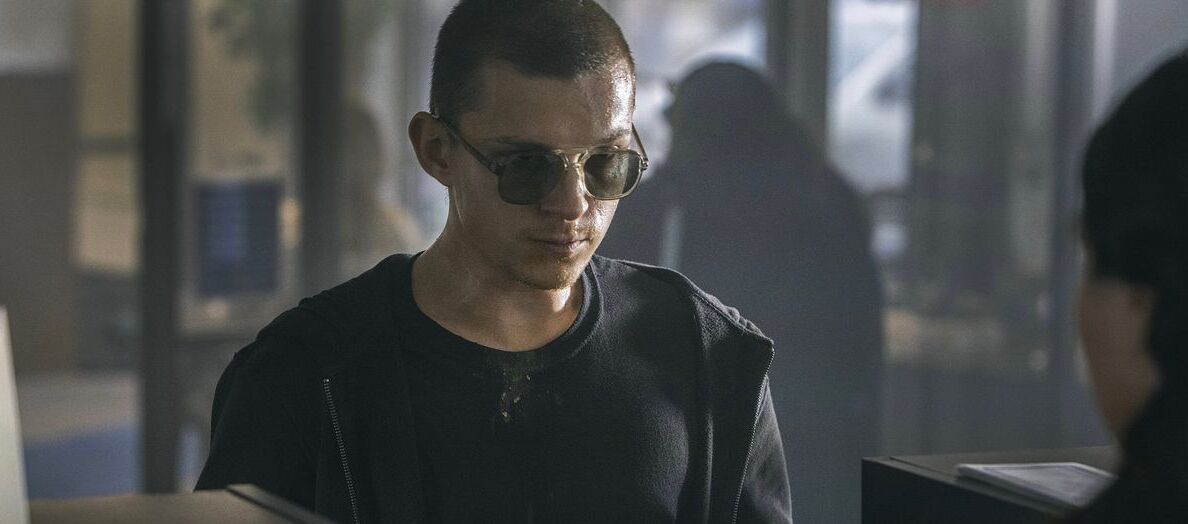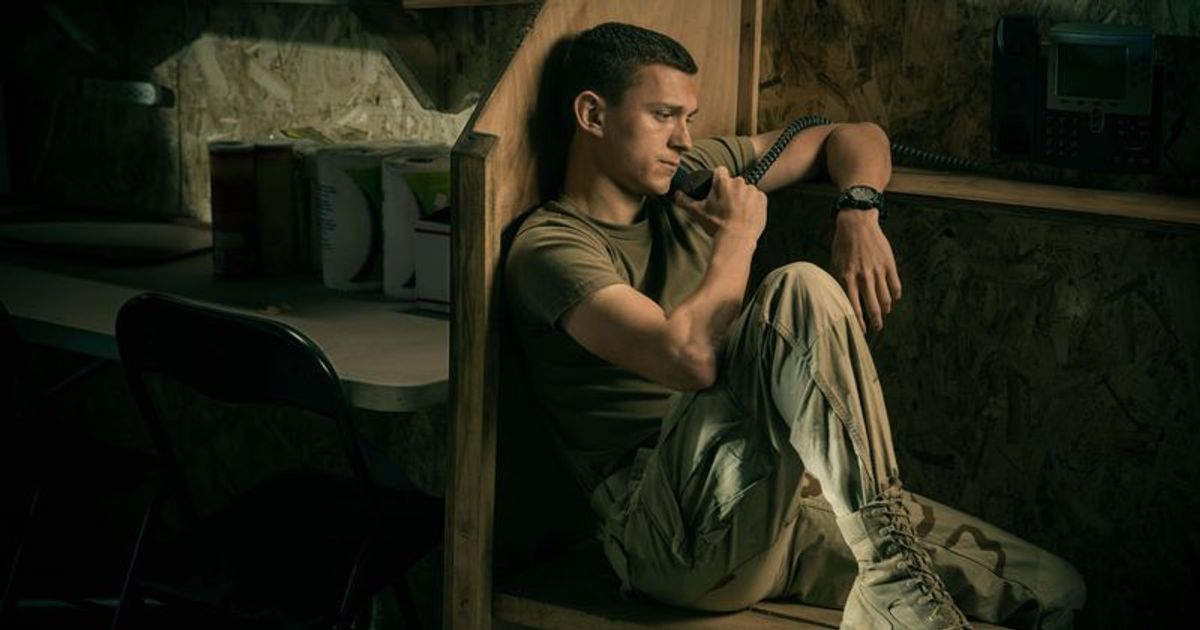‘Cherry’ is the story of a young man (Tom Holland) who drops out of college and becomes an Army medic in Iraq. When he returns to the USA, he lives through undiagnosed PTSD and develops an addiction to opioids. The matter goes from the frying pan into the fire as his mental health deteriorates and his personal relationships start getting strained. He eventually resorts to robbing banks to support his drug habit. The crime drama film is based on a book of the same name by Nico Walker, who was incarcerated for bank robbery when he wrote it. Naturally, one starts to wonder if the film has anything to do with the author’s real-life experiences. You might find it fascinating to learn what we know!
Is Cherry Based on a True Story?
‘Cherry’ is partially based on a true story. ‘Cherry’s story bears a strong resemblance to Nico Walker’s personal journey; however, the book is not an autobiography. Walker admits that on a “very basic level,” the events in the book are not what happened to him, but the military parts “closely mirror” his experience. He further clarified that there is a lot of difference between the book and his real life, and his main focus was to write about his time in Iraq and its impact on his life.

Much like the film, Walker dropped out of college at the age of 19 and enlisted in the Army. From 2005 to 2006, he served as an Army medic in Iraq and was a part of more than 250 combat missions, a high count for most trained infantry soldiers. He received several medals and citations for his service. But after Walker returned from Iraq, he started showing signs of severe PTSD and other mental health-related issues. He turned to heroin and oxycontin as a way to cope, leading to heavy addiction.
He robbed his first bank in December 2010 and had robbed almost ten banks in four months before he was arrested in April 2011. In 2012, he pleaded guilty to the crimes and was sentenced to 11 years in prison. His book was published in 2018, and he was released early from the Kentucky federal prison in October 2019. According to forensic psychiatrist Pablo Stewart, Walker had “one of the worst cases of PTSD” he had ever come across.
Although Walker is an executive producer of the film, he did not contribute in person. The Russo brothers did not involve him in the making of the film, which he felt was their prerogative as filmmakers. The author also said that he did not watch the whole film since the story is too personal, and he did not want to “replace” it with another version. The Russo brothers spoke to him about obtaining the rights. However, the team consulted numerous people to develop the onscreen characters. This involved talking to former addicts and soldiers living with PTSD.
You may also find it interesting to note that Tom Holland had to work hard to fit Cherry’s physical description as the character goes through various phases in life. To shoot the film’s portion involving Cherry’s addiction and PTSD, the actor lost close to 30 pounds. To maintain authenticity, the team also apparently used real needles for the scenes involving drugs. The role was, as it is, physically demanding for Holland, but he also suffered injuries while filming. There is a particular scene where Cherry is having a meltdown in the car. The actor accidentally hurt his nose on the steering wheel and was bleeding but continued to shoot the sequence.

Anthony and Joe Russo got hooked on Walker’s story because they felt a strong connection with his experiences, given that they are also from Cleveland, where the story is set. The subject of the film is close to the Russo brothers’ hearts since they have friends and family who have been affected by addiction. They felt responsible for telling this story since it is “timely and important” as the crisis is a reality. In 2019 alone, approximately 10.1 million Americans aged 12 or older misused opioids.
The film also shines a light on mental health issues among war veterans, which is quite common. Unfortunately, they are not able to receive adequate mental health services that could help them cope better. This escalates the issue and contributes to high suicide rates among veterans. In 2017, on average, 16.8 veterans died by suicide every day in the US. These figures show the depth of the problem. Therefore, it is natural that many viewers can relate to Cherry’s experiences and what drives him into the dark phase of his life.
Read More: Cherry Filming Locations


You must be logged in to post a comment.